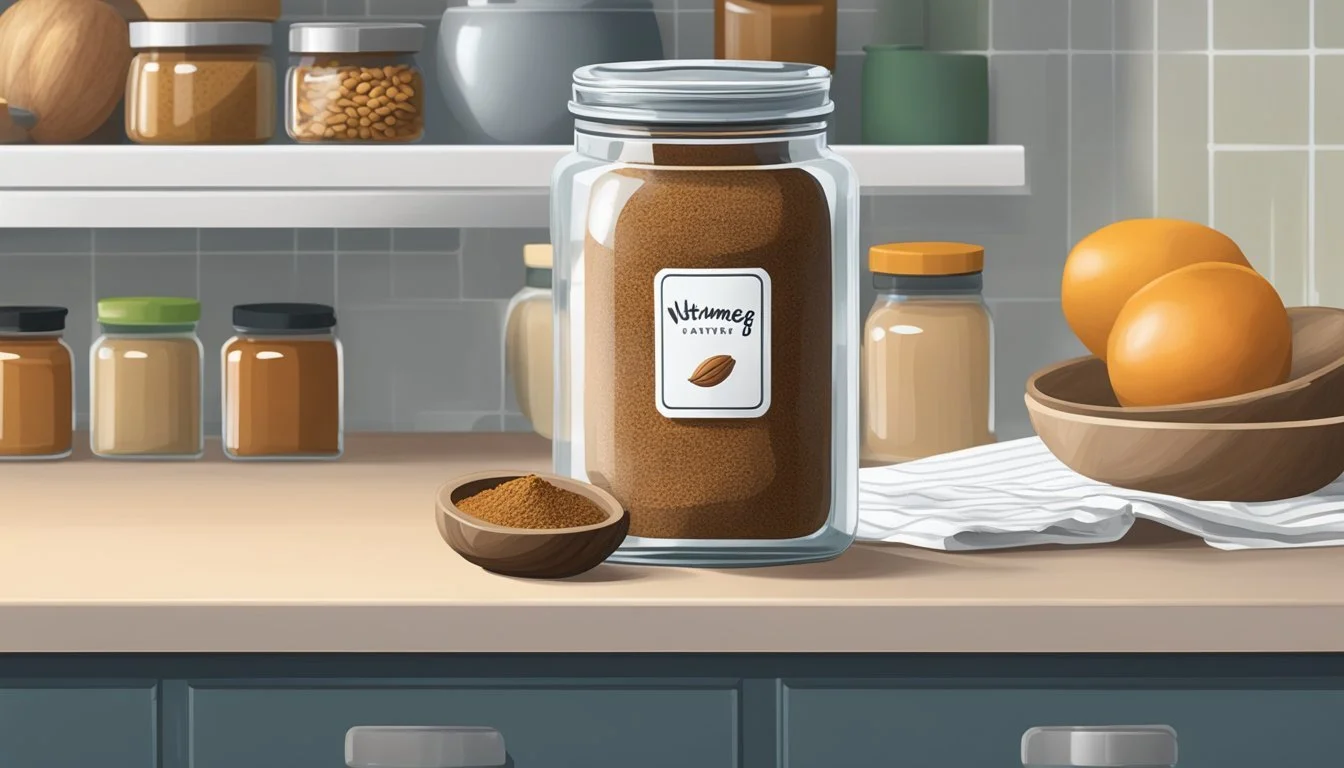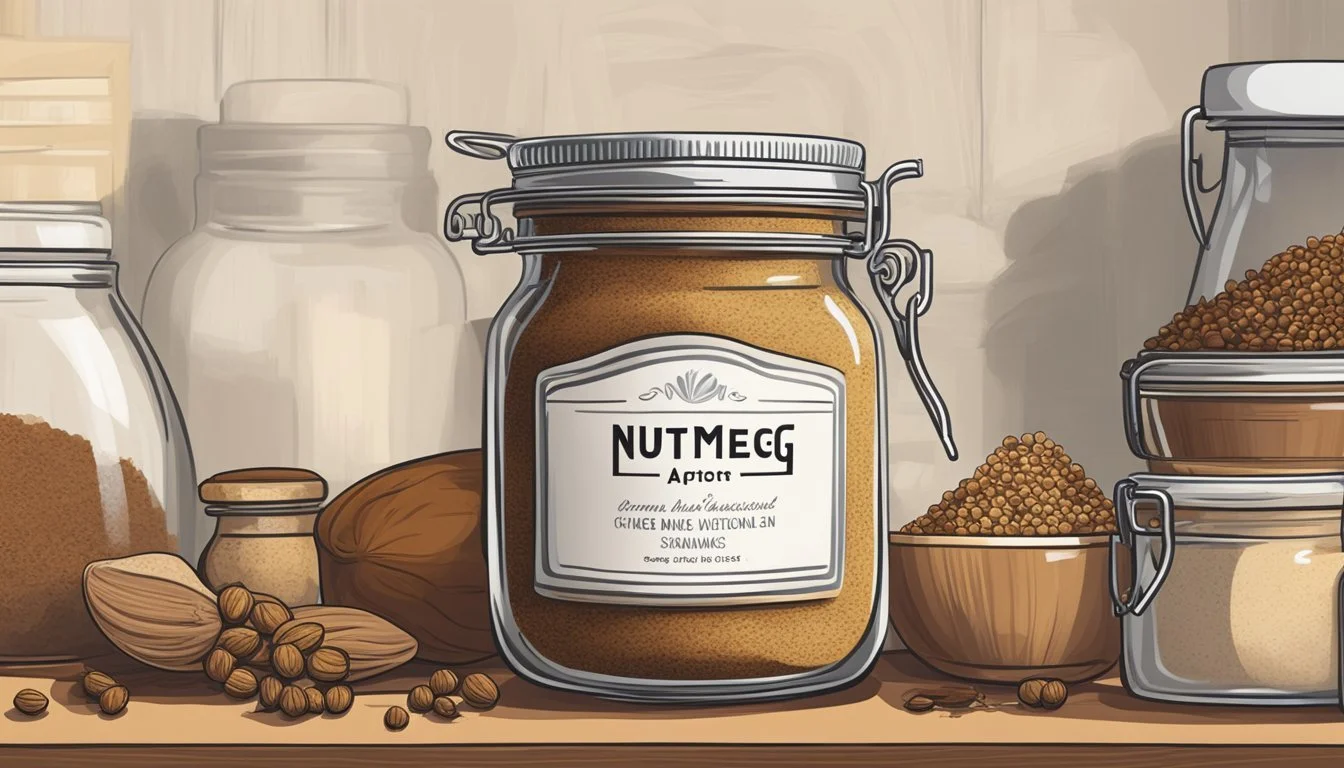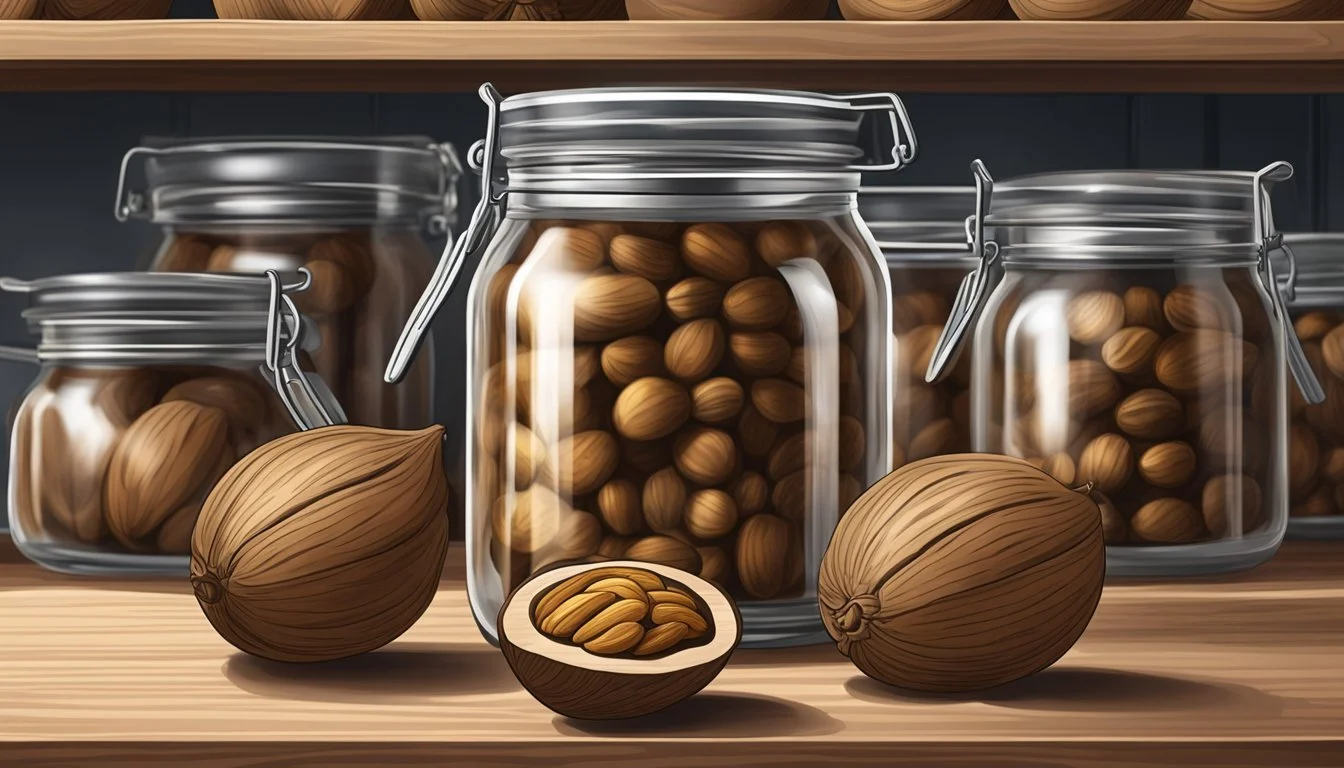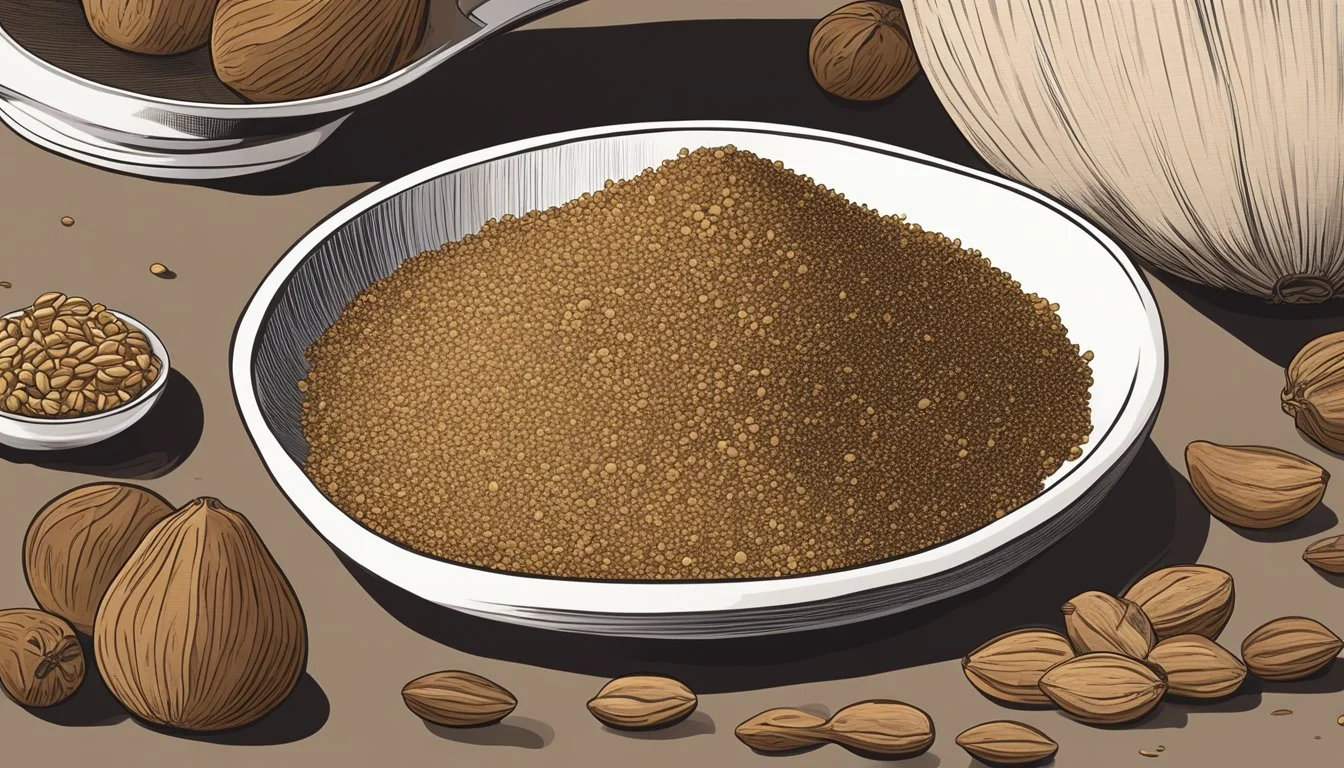Does Nutmeg Go Bad?
Shelf Life, Storage Tips, and Signs of Spoilage
Nutmeg, a versatile and aromatic spice, is a staple in many kitchens around the world. Whether used to enhance sweet or savory dishes, its unique flavor is cherished by many. Yes, nutmeg can go bad over time, especially if not stored properly. Ground nutmeg typically has a shorter shelf life compared to whole nutmeg. As it ages, the spice's potency, aroma, and flavor can diminish significantly.
When stored in a cool, dark place, whole nutmeg can retain its essential oils and quality for up to two to three years. Ground nutmeg, on the other hand, may only last about six months to a year before losing its vibrant characteristics. Proper storage is key to maintaining the spice's quality; keeping it in an airtight container away from light and moisture will help extend its shelf life.
For those who frequently use nutmeg in their culinary endeavors, understanding these storage tips can ensure the spice remains fresh and flavorful. Nutmeg’s shelf life directly impacts the aroma and taste it provides to dishes, making it crucial to store it correctly and know when it’s past its prime.
Understanding Nutmeg
Nutmeg, both in its whole and ground forms, has a rich history and diverse uses. This section explores its origin, types, and health benefits to provide a comprehensive picture.
History and Origin
Nutmeg comes from the Myristica fragrans tree, native to the Banda Islands of Indonesia. These islands were once the world's only source of nutmeg and mace, leading to fierce colonial battles in the 16th and 17th centuries.
The term "nutmeg" itself is derived from Old French 'nois muguette'. Today, nutmeg is cultivated in many tropical regions around the world. Its introduction to Europe in the Middle Ages led to its use in various culinary and medicinal applications.
Types of Nutmeg
There are two main types of nutmeg: whole nutmeg and ground nutmeg. Whole nutmeg, the seed of the nutmeg tree, can be grated fresh for a more intense flavor. Ground nutmeg, often used in baking and cooking, comes from pre-grated whole nutmeg and tends to lose its potency faster than the whole form.
Mace, a related spice, is made from the red aril that covers the nutmeg seed. While nutmeg has a warm, nutty flavor, mace is slightly more delicate and can be used similarly in recipes.
Health Benefits
Nutmeg offers numerous health benefits due to its rich nutrient profile. It is an excellent source of antioxidants, which help combat free radicals in the body, potentially reducing the risk of chronic diseases. Nutmeg also contains fiber, which aids in digestion and supports gut health.
Moreover, substances in nutmeg have been studied for their potential anti-inflammatory and liver-protecting properties. It may also help improve mood and provide minor pain relief. Despite these benefits, it's important to use nutmeg in moderation as high doses can be toxic. Its inclusion in the diet should be careful and measured.
The Shelf Life of Nutmeg
Nutmeg's shelf life varies significantly depending on whether it is whole or ground. Proper storage can extend its freshness and potency, but there are clear signs when it begins to spoil. Understanding these aspects will help maintain the quality of this spice in your pantry.
Whole Versus Ground
Whole Nutmegs: Whole nutmegs usually last longer than ground nutmeg due to their intact structure, which protects the essential oils inside. When stored in a cool, dark place, whole nutmegs can maintain their quality for up to four to five years. Using airtight containers further helps preserve their freshness and potency.
Pre-Ground Nutmeg: Ground nutmeg, on the other hand, has a shorter shelf life. Due to its increased surface area, it is more prone to losing its essential oils and flavor more rapidly. Typically, ground nutmeg retains its best quality for about two to three years when stored properly in an airtight container, away from heat, light, and moisture.
Signs of Spoilage
Nutmeg can go bad if not stored correctly. Identifying spoilage signs is crucial to avoid unpleasant flavors or potential health risks.
Changes in Aroma: Fresh nutmeg has a distinctly strong, sweet, and slightly spicy aroma. If the nutmeg smells musty, stale, or has lost its fragrance entirely, it is likely no longer good.
Altered Appearance: Whole nutmegs should have a consistent brown color. Any signs of mold, discoloration, or soft spots indicate spoilage. Ground nutmeg should be a uniform powder; clumping or discoloration can be a sign that it has gone bad.
Taste: If you suspect your nutmeg might be old, tasting a small amount can be an effective test. A noticeable reduction in flavor intensity or an off-taste likely means it is past its prime.
Expiration Date
Label Dates: Most commercially sold nutmeg comes with a best-by date on the label. While not an absolute expiration date, it provides a good guideline for freshness. Typically, nutmeg is still safe and effective for use up to a year past this date if stored properly.
Storage Tips: Keeping nutmeg in airtight containers and in a cool, dark place can maximize its shelf life. Avoid storing it near the stove or in direct sunlight, as heat and light can degrade its quality faster.
Maintaining the quality of nutmeg is straightforward with proper storage and attention to spoilage signs. This ensures that your dishes always benefit from the spice’s full flavor and aroma.
Storing Nutmeg Properly
To maintain the flavor and potency of nutmeg, specific storage practices are crucial. Proper storage methods can extend the shelf life of nutmeg, ensuring it remains fresh and usable.
Ideal Storage Conditions
Nutmeg, whether whole or ground, should always be stored in a cool and dark place. Ideal storage conditions minimize exposure to heat, light, and moisture, which can degrade the quality of the spice.
A pantry is often the best location for storing nutmeg. Keeping the container away from direct sunlight and heat sources helps preserve its aromatic properties.
Additionally, avoiding places with high humidity, like above the stove, prevents moisture from causing the nutmeg to spoil or lose potency.
Proper Containers for Storage
Using the right container is essential for preserving nutmeg. An airtight container is optimal to prevent air and moisture from getting in. Whole nutmeg can be stored effectively in a glass jar with a tight-fitting lid.
Ground nutmeg, being more vulnerable to environmental factors, should also be kept in an airtight container. For an extra layer of protection, sealable bags can be used within the container.
Labeling the container with the date of storage helps track its freshness. Ensuring the container is clean and dry before adding the nutmeg also contributes to longevity.
Using Nutmeg in Cooking
Nutmeg adds a unique warm, slightly sweet flavor to various sweet and savory dishes. Its versatility makes it a staple in numerous recipes and beverages, enhancing their aromatic qualities.
Culinary Applications
Nutmeg is often used in baked goods such as cakes, cookies, and pies. It’s a star in traditional holiday treats like eggnog and spice blends used for pumpkin pie. In savory dishes, nutmeg enhances the flavor of sauces and soups, especially those with a cream base. Chefs also use nutmeg in sauces like béchamel and to season vegetables such as spinach and potato dishes.
Coffee and tea drinkers might sprinkle nutmeg for an added layer of spice. When used sparingly, it complements rather than overpowers, making it a go-to spice for diverse culinary adventures.
Pairing Nutmeg with Other Ingredients
Nutmeg pairs well with cinnamon and allspice, creating a rich, warm flavor profile that's especially popular in baked goods and desserts. These spices together are perfect for mulled beverages like cider and wine.
When incorporated into sauces and soups, its subtle sweetness balances savory flavors and adds depth. Nutmeg also works well with creamy ingredients, making it a perfect addition to whipped cream or custards.
Using nutmeg in moderation is key to ensuring its aromatic qualities are preserved without overwhelming the dish’s flavor.
Preventing Nutmeg Spoilage
Proper storage of nutmeg is essential to prevent spoilage and ensure its longevity. Key factors include controlling moisture, avoiding heat, and monitoring for mold growth.
Moisture and Heat Exposure
Excess moisture is one of the primary causes of nutmeg spoilage. Nutmeg should be kept in a dry place, away from sources of humidity. A sealed container is preferable to protect against moisture in the air. Exposure to heat can also deteriorate nutmeg quality. Store it away from ovens, stoves, and direct sunlight. Temperature fluctuations can cause condensation inside containers, leading to mold growth. Aim for a consistently cool environment to preserve its freshness.
Indications of Mold Growth
Mold formation on nutmeg can be identified by the appearance of fuzzy, green, or black spots. Visual inspection is necessary to detect initial signs of organic growth. Mold not only affects the nutmeg's flavor but poses health risks. If mold is present, discard the entire batch to avoid cross-contamination. Regular checks can help in early detection, especially if nutmeg is stored for an extended period.
Food Safety Considerations
Ensuring food safety involves both preventive measures and regular inspections. When storing nutmeg, avoid using fingers to scoop it out as it may introduce moisture and bacteria. Use clean, dry utensils instead. If any off-putting smells are detected, it may indicate spoilage or the beginning of mold growth. Nutmeg that has been stored for over a year should be checked for potency and signs of spoilage, as extended storage increases the likelihood of quality degradation.
By focusing on these preventive measures, the longevity and safety of nutmeg can be maintained effectively.
Alternative Uses and Benefits
Nutmeg offers a range of home remedy applications and can be effectively substituted with other spices when needed. This section details its versatile benefits and alternative options for culinary purposes.
Nutmeg in Home Remedies
Nutmeg is often praised for its myriad health benefits beyond its use as a spice. Its aroma and flavor make it a popular choice in home remedies, particularly for improving digestion. The presence of fiber in nutmeg ensures a smooth digestive process.
It is also known to assist in promoting better sleep. Many people find that a warm glass of milk with a pinch of nutmeg can help alleviate insomnia.
Nutmeg's anti-inflammatory properties are used to treat pain and inflammation. Additionally, small amounts can help alleviate anxiety and depression due to compounds like myristicin and elemicin, which have mild sedative effects.
Those using nutmeg should be cautious to consume it in moderation. Excessive amounts can lead to adverse side effects such as hallucinations and allergic reactions.
Substitutes for Nutmeg
When nutmeg is not available, several substitutes can mimic its warm and spicy aromas and flavors. Mace, derived from the same seed as nutmeg, serves as an excellent substitute with a similar profile but is slightly more pungent.
Another alternative is cinnamon. It can replicate the warmth of nutmeg, although it has a sweeter and less complex taste.
Allspice is another viable option. It offers a combination of flavors reminiscent of nutmeg, cinnamon, and clove.
In recipes where nutmeg is required for its unique aroma, combining cinnamon and ground cloves in equal parts can work as an effective replacement. This helps achieve a balanced flavor similar to that of fresh nutmeg.
By understanding these substitutes, one can ensure that recipes remain delicious and flavorful, even in the absence of nutmeg.
Frequently Asked Questions
Nutmeg, like other spices, can degrade over time. Proper storage methods and understanding the differences between whole and ground nutmeg are essential for maintaining its quality and flavor.
Can Nutmeg Go Bad?
Yes, nutmeg can go bad. Whole nutmeg lasts significantly longer than ground nutmeg, typically maintaining its quality for up to four years when stored in a cool, dark place. Ground nutmeg, on the other hand, has a shorter shelf life, retaining its flavor and potency for about two to three years.
The primary factors affecting nutmeg's longevity are exposure to air, light, and moisture. These elements can accelerate the degradation process. To ensure that nutmeg remains fresh, it should be stored in an airtight container, away from direct light and humidity. If nutmeg becomes stale, it will lose its characteristic aroma and flavor.
Is Freezing Nutmeg Effective?
Freezing nutmeg is an effective method for extending its shelf life, particularly for ground nutmeg. By limiting the spice's exposure to air and moisture, freezing helps maintain its potency and flavor. However, when using frozen nutmeg, it is crucial to allow it to return to room temperature before opening the container to prevent condensation.
For whole nutmeg, freezing is generally not necessary due to its already long shelf life when stored properly. Instead, keep the nutmeg in a cool, dark, and dry place. If you prefer to freeze whole nutmeg, ensure it is well-sealed in an airtight container to avoid freezer burn or moisture buildup.
Nutmeg Handling and Preparation Tip
Proper handling and preparation can help maintain nutmeg's freshness and enhance its flavor in your dishes. Following these tips will ensure that you get the most out of this spice.
How to Grind Nutmeg
To grind nutmeg, start with whole nutmeg seeds, which retain their essential oils and robust flavor better than pre-ground nutmeg. A microplane or a fine grater works effectively for this purpose. Place the nutmeg seed at the top of the grater and move it back and forth with minimal pressure. This action shaves off small, fragrant pieces that are perfect for cooking or baking.
Freshly grated nutmeg can be more aromatic and flavorful than store-bought ground nutmeg. For best results, grind only what you need at the moment, preserving the rest of the seed in an airtight container. This method not only ensures peak freshness but also maintains the spice's rich, complex taste longer.
Tips to Maximize Freshness
Storing nutmeg properly can significantly extend its shelf life and potency. Keep whole nutmeg and ground nutmeg in separate airtight containers to reduce exposure to air and moisture, which can lead to flavor loss. Store these containers in a cool, dark place like a cupboard or spice drawer away from direct sunlight and heat sources.
Make sure your hands and utensils are dry before handling nutmeg to avoid introducing moisture, which can cause spoilage. If you notice any moisture in the container, wipe it clean immediately. Consider vacuum-sealing nutmeg if you purchase it in large quantities, as this can lock in freshness and prevent contamination.
Following these storage techniques keeps your nutmeg aromatic and flavorful for a longer period, letting you enjoy its full range of culinary benefits.










